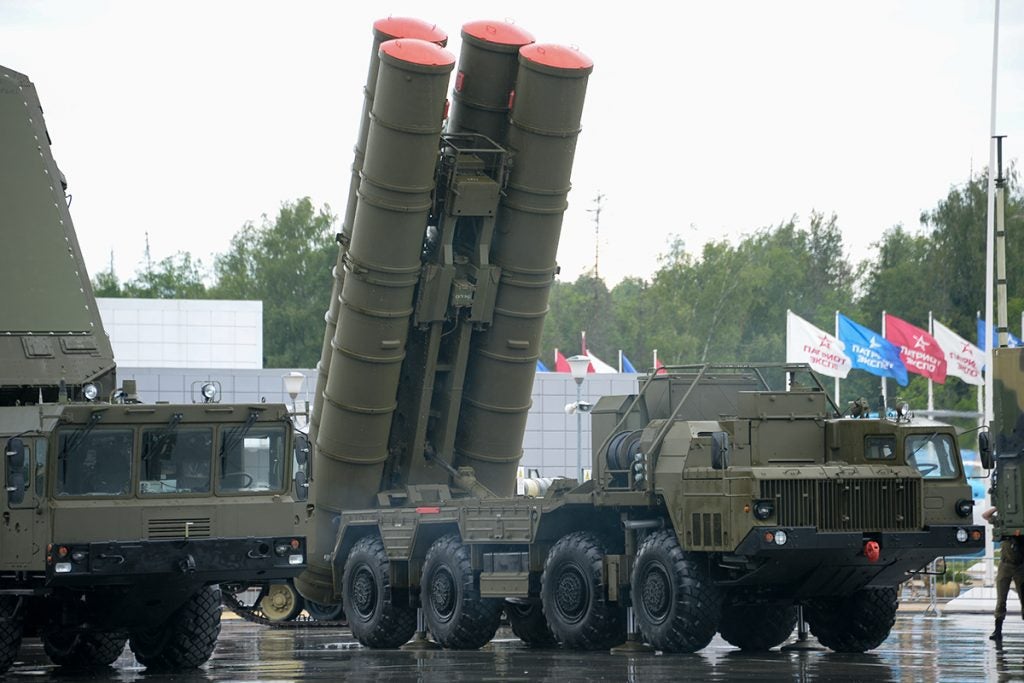Indian Advance Payments for S-400 Systems Settled
TASS news agency was told on 29 August by the press office of Russia’s Federal Service for Military and Technical Cooperation that Russia and India have settled the issue of the Indian government’s advance payment for the delivery of S-400 (NATO reporting name SA-21 Growler) surface-to-air missile systems.
The statement read:
“The contract for S-400s will be implemented in compliance with the accords reached and the documents signed. The issue of making an advance payment under the contract has been resolved. We are not commenting on the details.”
The Indian government had approved the purchase of five S-400 systems in December 2015, but the deal to purchase the systems was only signed in October 2018, at a summit between President Vladimir Putin of Russia and Prime Minister Narendra Modi of India. The total value of the deal is estimated at $5.5 billion.
The Minister Counsellor of the Russian Embassy in India, Roman Babushkin, also stated that Russia will take “all necessary efforts” to ensure that the systems are delivered on time.
“The term of the contract’s implementation is well known: by 2023, these systems must be delivered to India. Russia is ready to take all necessary efforts to follow the time parameters of this agreement.”
India is the third export customer of the S-400 system, following China and Turkey. Like Turkey, India has been subject to a warning by the United States due to the Countering America’s Adversaries Through Sanctions Act, which threaten the imposition of sanctions on governments that make significant military hardware purchases from Russia.
India is a current operator of the S-400’s predecessor, the S-300 (NATO reporting name SA-10 Grumble). India is also attempting to develop an indigenous ballistic missile defense system. It remains unclear as to what the purchase of the S-400 portends for the development of the indigenous system.
India remains the largest foreign buyer of Russian military hardware. Recently, Indian purchases have diversified with the introduction of the “Make in India” campaign, with foreign defense contractors willing to partner with Indian contractors being favored, notably Dassault’s partnership with Hindustan Aeronautics Limited for production of the Rafale fighter. These changes have yet to bear fruit due to the infamous sluggishness of the Indian government bureaucracy, as well as reluctance on the part of foreign contractors following the collapse of the Rafale deal.

